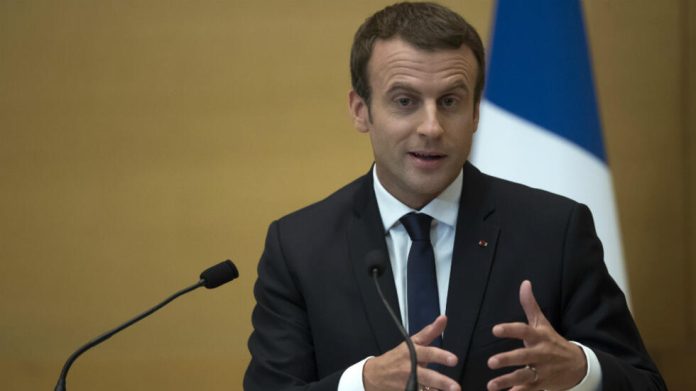France’s government is finding it increasingly difficult to control its budget deficit, undermining President Emmanuel Macron’s credibility as an economic reformer capable of solving the country’s fiscal problems, Luxembourg Times reports.
Official data on Tuesday showed the gap between revenue and spending widened to 5.5 per cent of economic output in 2023 from 4.8 per cent the previous year, much higher than the 4.9 per cent the government had planned for.
Growth in tax revenues slowed sharply amid stagnation in the eurozone’s second-largest economy, while spending growth slowed marginally, according to data from statistics agency Insee.
The widening deficit was a blow to Macron, who since taking office in 2017 has earned a reputation as a leader seeking greater austerity, in contrast to years of French governments failing to meet deficit targets. He has exceeded annual targets four times in his first five-year term in office, with the only slippage being caused by a pandemic.
The scale of the backlog in 2023 calls into question Macron’s strategy of gradually rebuilding finances through growth-enhancing changes such as relaxing labour laws or raising the retirement age. Until spending peaked during the COVID crisis and the energy crisis, this approach allowed him to avoid painful austerity measures or pinching businesses and households with tax hikes. ING’s senior France economist Charlotte de Montpellier said:
The strategy is still there and it’s relevant, but it was probably forgotten that you can’t just count on nice things happening. You can’t solve short-term problems by increasing growth potential.
A move to raise taxes – which the government opposes – or make deeper spending cuts would be a risky political move, with Macron’s party already trailing Marine Le Pen’s far-right Rassemblement Nationale by about 10 points in polls on voting intentions ahead of European Parliament elections in June. Moreover, the president has promised to cut taxes for low-paid workers next year.
In February, the finance ministry had already announced €10 billion in savings to try to get back to its deficit target of 4.4 per cent of economic output this year. It said at least another €20bn would be needed in the 2025 budget.
The government will present an updated version of the multi-year public finance plan it is submitting to Brussels on 17 April, Finance Minister Bruno Le Maire said in a telephone briefing with reporters. Last year’s version of the stability programme set a deficit target of 2.7% of economic output in 2027.
Le Maire claimed that the government still aims to reduce the deficit below the European Union’s 3 per cent limit in three years, when Macron’s presidency ends. He added that he was sending letters to government agencies asking for more savings and invited opposition lawmakers to a meeting later this week to discuss possible cuts in the 2025 budget. the minister said:
We are at a crossroads: Leaving debts and deficits to rise would be irresponsible, or we choose a path of determination, method and sangfroid.
Some Macron allies are urging him to abandon the “don’t raise taxes” mantra at the heart of his business-friendly presidency, which has helped attract foreign investment to France. Francois Bayrou, a key centrist supporter, said on Monday that the topic should be discussed when preparing next year’s budget. Bayrou told RTL radio:
Lawmakers have been looking at options and how we could have better balance in terms of fairness without damaging the image of France that attracts investment.
Le Maire said he was willing to enforce stricter taxes on the excess profits of energy companies, which brought the government far less revenue than expected last year. But he said the government remained opposed to any tax increase and that the focus should be on cutting spending in the country with the world’s highest tax and spending rates.
Macron’s government is under even more pressure from ratings companies, which have become increasingly critical of France’s finances. Last April, Fitch Ratings downgraded France to AA- from AA, and S&P Global Ratings put a negative outlook on its valuation.
Bank of France Governor Francois Villeroy de Galhau has also warned that the country’s struggle with high debt and deficits is damaging its credibility in Europe. He said in an interview with French newspaper Le Figaro this month:
For 40 years, it’s never been the right moment to get a better grip on public spending. We are calmly passing a potential time bomb to future generations.
